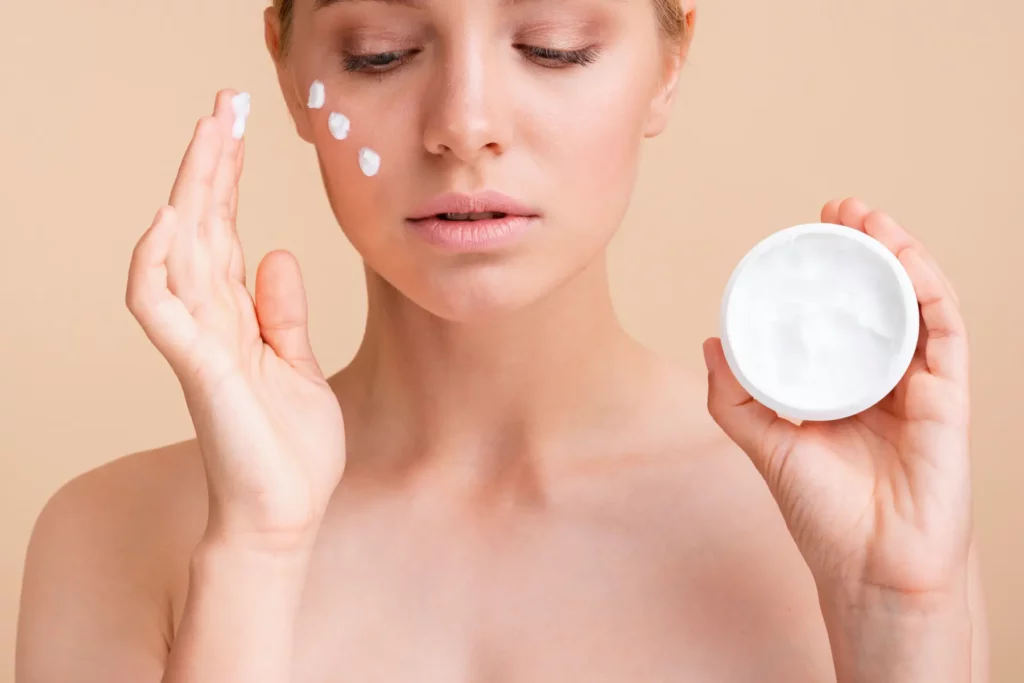Are you planning to jump on the probiotic skincare bandwagon? Here’s everything you need to know about it.
You must have heard that probiotics are beneficial for your digestive health. But did you know that probiotics can work wonders for your skin? Probiotic skincare is creating a lot of buzz in the skincare world as it claims to improve the health and appearance of your skin by supporting the skin’s natural microbiome. But does it actually work? Here’s everything you need to know about the science behind probiotic skincare and whether you should be using it.
What is probiotic skincare?

Probiotics are living microorganisms commonly found in fermented foods like yoghurt, kimchi, and sauerkraut. They work by restoring the balance of bacteria in the gut, which can help improve digestive health and boost immunity. But what is probiotic skincare? Using products with live microorganisms inside them to improve skin health is known as probiotic skin care. These skincare products are designed to help restore the balance of the skin’s microbiome and reduce inflammation, which can lead to a variety of skin concerns like acne, rosacea, and eczema. But why is it important to maintain the balance of the skin’s microbiome? A 2019 study found that the microbiome of healthy skin is different from that of diseased skin in terms of composition. Additionally, according to research from 2021, dysbiosis in the skin’s microbiome can cause the emergence and aggravation of skin conditions.
What are the commonly found probiotics in skincare?
Lactobacillus is one of the most common probiotic strains found in skincare products. Yoghurt frequently contains this strain, which is known to have antimicrobial and anti-inflammatory properties. Other probiotics commonly found in probiotic skincare include:
- Lactococcus
- Bifida
- Streptococcus thermophilus
- Saccharomyces
- Lactobacillus
- Leuconostoc
There are many different types of probiotic skincare products, including cleansers, serums, moisturisers, and masks. Prebiotics, non-digestible fibres that support the growth of good bacteria on the skin’s surface, may also be present in some products.
Who should use probiotic skincare?

While probiotic skin is becoming increasingly popular, do you really need it? All skin types can benefit from probiotic skincare products and treatments, but those with chronic inflammation benefit the most. If your skin microbiome is out of balance because of excessive use of harsh formulations, skincare products with probiotics (or their lysate form) can help. This is because probiotic-infused products work to introduce helpful bacteria and nutrients to your skin in order to soothe inflammatory skin issues.
What are the benefits of probiotic skin?

Do you want to get a flawless complexion? Here’s how probiotic skincare can help you in achieving your skincare goals:
- Can treat eczema
If you are struggling with atopic eczema, probiotic skincare can work wonders for you. Applying products with probiotics can significantly reduce eczema-causing bacteria and help alleviate the symptoms.
- Minimise visible signs of ageing
Did you know probiotic skincare products have potent anti-ageing benefits? They help restore your skin’s natural pH levels, reduce damage from UV rays, and combat oxidative stress, thus giving you a youthful complexion.
- Treats acne
Probiotic skincare can tackle acne by introducing good bacteria to the skin, which fights off the breakout-causing bacteria. Additionally, probiotic skincare can help reduce inflammation and promote healing, which can be helpful for those with acne-prone skin.
- Boosts hydration
Additionally, probiotic skincare can improve skin hydration. Probiotic skincare products contain live bacteria and yeasts that can help strengthen the skin barrier, minimising moisture loss and enhancing water retention. Therefore, probiotic skincare can help you get a softer, smoother, and more radiant complexion.
If you want to learn more about the incredible benefits of snail mucin, schedule a consultation with me. Click here.
